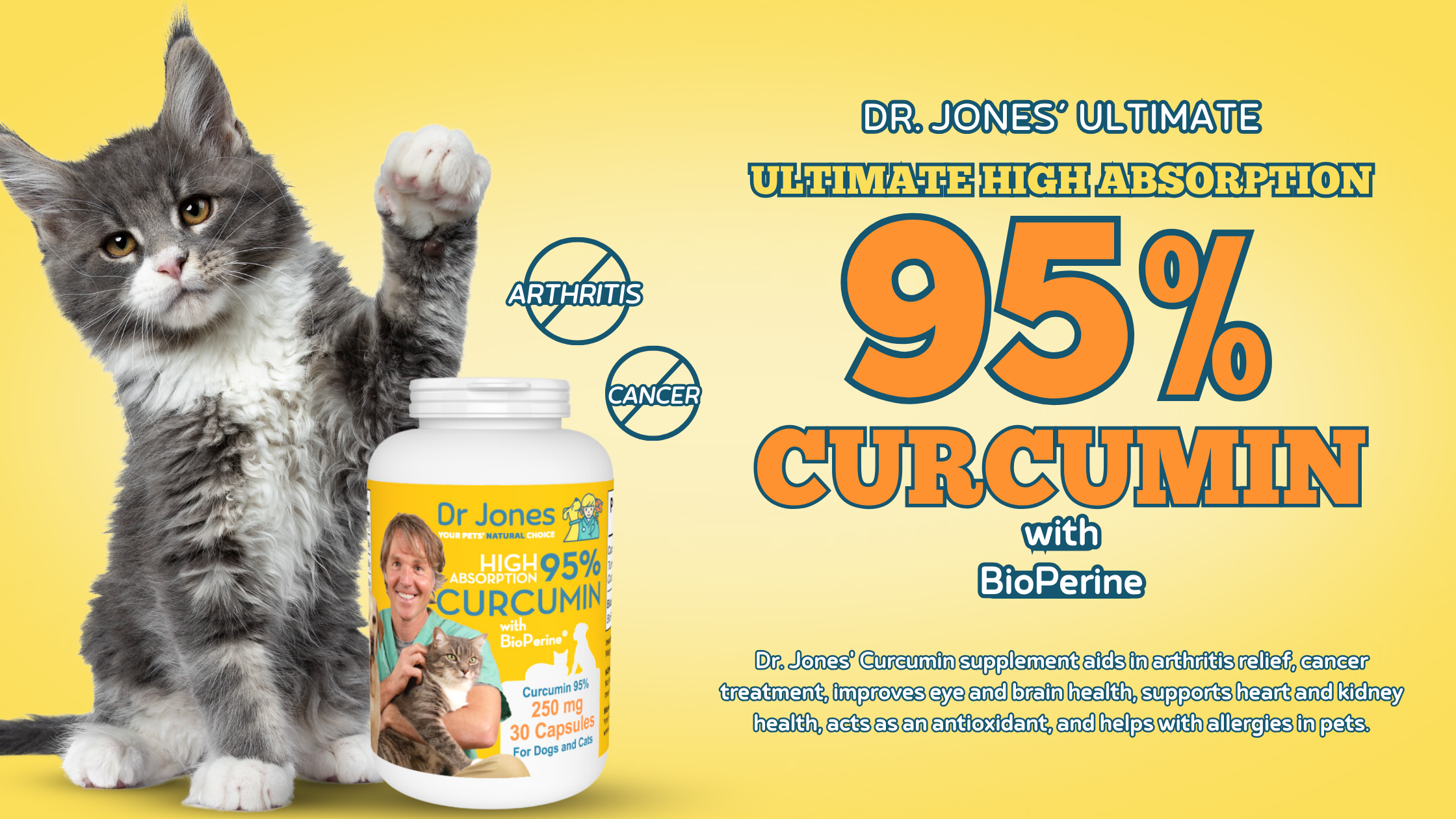in Pain? My Top Natural Remedies

Many of you reading this are going to have a dog or cat who has been on an NSAID – Non Steroidal Anti inflammatory Drug.
Yes they can be effective for acute pain relief… .
But they can also have some serious side effects, and should be avoided long term… .and NEVER given to cats long term.
Common side effects include vomiting, diarrhea, not eating/eating less, and lethargy. If your pet experiences any of these potential side effects, STOP administering the medication and contact your veterinarian immediately. Veterinary NSAIDS may be associated with gastrointestinal ulcers/perforations, liver, and kidney toxicity.
Serious side effects associated with the use of NSAIDs can occur with or without warning and, in some cases, result in death. Use with other anti-inflammatory drugs, such as other NSAIDs and corticosteroids, should be avoided.
Patients at greatest risk for kidney problems are those that are dehydrated, are on diuretic treatment, or have pre-existing kidney, heart, and/or liver problems. NSAIDs can cause stomach or intestinal bleeding.
Just to name a few signs.
What CAN you do?
Well as an alternative option, you should consider trying our NEW 95% Curcumin Supplement, Dr. Jones’ Ultimate High Absorption 95% Curcumin for Dogs and Cats


Effective Natural Pain Relief for Dogs and Cats
Discover a variety of natural options for managing pain in your dogs and cats, carefully avoiding the serious side effects associated with conventional anti-inflammatory drugs.
Natural Remedies for Pain Relief
Ginger
Ginger extract is beneficial for joint and muscle pain due to its phytochemicals that help reduce inflammation. Utilize fresh ginger by steeping it in boiling water to make tea or by grating it into vegetable juice.
DMSO (Dimethyl Sulfoxide)
This organosulfur compound is effective in penetrating the skin and can be applied topically to joints affected by swelling and arthritis, such as the knees. Recommended usage is twice daily.
Combination Therapy with Arnica, Traumeel, and CBD Oil
Enhance the effect of DMSO by combining it with Arnica gel, Traumeel, or CBD oil. Apply the mixture topically twice daily for optimal results.
Essential Oils: Frankincense and Almond
Mix with a carrier oil like olive, coconut, or almond oil, and apply to the affected areas. Particularly beneficial for dogs.
Heat and Cold Therapy
Initially, use cold therapy to reduce blood flow and swelling. Once improved, switch to heat therapy to enhance blood circulation, thereby reducing pain.
Essential Fatty Acids (EFAs)
Incorporate EFAs such as flax, fish, or krill oil into your pet’s diet. Dosage varies depending on the type of oil and your pet’s weight.
Castor Oil
Apply topically for its anti-inflammatory and pain-relieving properties, supported by studies demonstrating significant benefits.
Homeopathic Remedies: Arnica 30C
Use for acute injuries and long-term muscle pain. The dosage is adaptable based on the severity and duration of the pain.
CBD (Cannabidiol)
A non-psychoactive component effective for arthritis and other auto-immune diseases including allergies. Dosage: 3mg per 10 pounds of body weight, administered once or twice daily.
Boswellia
This traditional Indian herb, also known as Frankincense, is used for its anti-inflammatory properties, particularly effective in doses of 10-20mg per 10 pounds of body weight daily.
High Absorption Curcumin
95% curcumin combined with Boswellia has shown to be as effective as Naproxen for pain relief. High absorption curcumin is particularly effective at a dose of 250mg per 50 pounds daily.
Special Highlight: Dr. Jones’ Ultimate High Absorption Curcumin
Dr. Jones’ supplement, featuring BCM-95 Curcugreen with BioPerine, enhances absorption significantly, making it a potent anti-inflammatory and antioxidant. Each capsule contains 250mg of Curcumin, with a total of 30 capsules per jar.


Our Pit Bull she’s 4 years old She has hip dysplasia. Her joints do hurt after play in our home. She has been taking rejensa. Can we use the DMSO and or something you have to get her off the medication. She also has allergies and is on apaquel. Any suggestions there also.
We would so appreciate your suggestions. We really enjoy your video’s.
Thank you Dr. Jones
Rick and Carol
Here’s a breakdown of suggestions for managing her hip dysplasia and allergies while considering natural remedies.
For Hip Dysplasia & Joint Pain:
DMSO (Dimethyl Sulfoxide):
DMSO can be an effective topical treatment for inflammation and pain relief. However, it should be used cautiously. DMSO can penetrate the skin and bring other substances with it, so it’s important to ensure you apply it only to clean, unbroken skin.
Before using DMSO on your Pit Bull, consult your vet to ensure it won’t interact with her current Rejensa medication or cause any issues with her health. It’s essential to have a vet’s guidance, especially since she’s also on other medications.
Joint Supplements:
If you’re not already using them, glucosamine and chondroitin supplements are highly recommended for joint health. These can help support cartilage repair and reduce inflammation.
Some well-known products include Cosequin, Dasuquin, and Flexadin. These can be given in addition to her current supplement if advised by your vet.
CBD Oil:
CBD oil has been shown to help manage pain and inflammation in dogs. It could be a good option for your Pit Bull if she’s in pain from her hip dysplasia. It’s essential to choose a pet-safe, THC-free product and work with your vet to determine the right dosage.
Physical Therapy:
Gentle exercise and physical therapy can help your Pit Bull maintain mobility without exacerbating her joint pain. Ask your vet about specific exercises or consider seeing a professional canine physical therapist to guide you in exercises that promote joint strength without overworking her.
Turmeric:
Adding turmeric to her diet could help with inflammation, as it has natural anti-inflammatory properties. Curcumin, the active ingredient in turmeric, can help reduce joint pain, but make sure to consult your vet about the right dosage and how to introduce it into her diet.
For Allergies (on Apoquel):
Omega-3 Fatty Acids:
If your Pit Bull is suffering from allergies, incorporating omega-3 fatty acids into her diet could help. Fish oil, krill oil, or flaxseed oil are great options that can support her skin health, reduce inflammation, and help manage her allergy symptoms.
You can find pet-specific fish oils, such as Grizzly Salmon Oil or Nordic Naturals Omega-3 Pet.
Probiotics:
Probiotics can be beneficial for managing allergies, as they support her digestive health and immune system. Consider a high-quality probiotic supplement for dogs like Proviable or FortiFlora.
Hypoallergenic Diet:
If her allergies are related to food, consider trying a limited ingredient or hypoallergenic diet. Foods with novel proteins (like venison or duck) and grain-free options can help manage food-related allergies.
Alternative to Apoquel:
Apoquel works well for controlling itching, but if you want to explore natural alternatives, quercetin (a natural antihistamine) and calendula (for soothing the skin) can sometimes help reduce allergic reactions. However, it’s important to discuss any new treatments with your vet.